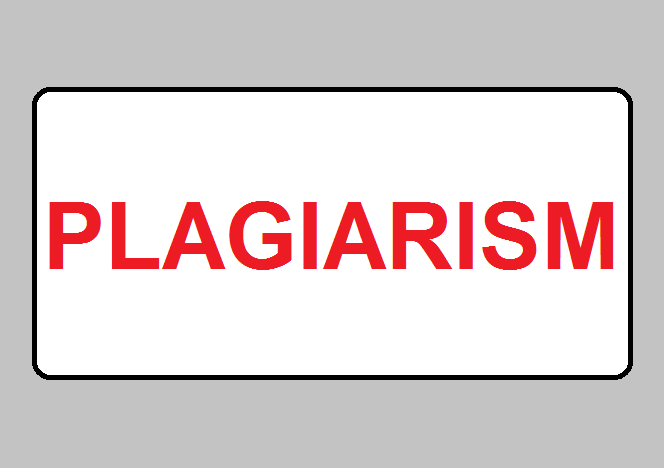 Plagiarism - the presentation or submission of another's work as your own.
Plagiarism - the presentation or submission of another's work as your own.
This includes summarizing, paraphrasing, copying, or translating words, ideas, artworks, audio, video, computer programs, statistical data, or any other creative work, without proper attribution.
Plagiarism can be deliberate or accidental. It can be partial or complete. No matter which, the penalties are often similar. Understanding what constitutes plagiarism is your first step to avoiding it.
Some acts of plagiarism:
- Copying and pasting from the Internet without attribution.
- Buying, stealing, or ghostwriting a paper.
- Using ideas or quotations from a source without citation.
- Paraphrasing an author, even slightly, without attribution.
- Using work you've done for another class or another purpose without documenting that it was previously used.
- Creating phony citations.
Image credit: By Erika.Eunice (Own work) [CC BY-SA 4.0 (http://creativecommons.org/licenses/by-sa/4.0)], via Wikimedia Commons

